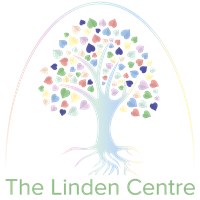The sequence of modules for Computer Science are designed to develop the students’ skills so that they can create programs of increasing sophistication, that allows their programming to embody the theory they learn.
KS3:
Starts with building a web site promoting their local area. This is an ICT module that enables the pupils to use their digital equipment to create original material. The students are encouraged to use multi-media elements to enhance their web site where relevant, stretching the use of the web authoring software beyond static presentation of information. Other ICT modules are included; in year 7 spreadsheets are used, where students see that variables and if statements enable them to
program their spreadsheet. They are also introduced to advanced short cutting tools, and begin to appreciate the versatility of digital data. Further ICT modules include the designing and creating of a phone app using Appshed in year 8, which requires the application of aesthetic and presentation skills, and Databases in Year 9, which feeds into the KS4 curriculum.
Programming is started visually using Scratch and the basic principles of algorithm development are introduced, namely: assignment, selection, iteration and sequence . These will reoccur throughout the whole of the curriculum right up to KS5. Different programming environments are then
introduced with the visual element continued in year 7 with Flowol. In year 8, the programming
aspect of the Phone app is done with Blockly code which is quite visual then more text-based coding is introduced with Small Basic and finally Python. While theory is interwoven within all the modules, more abstract theory is introduced in year 8 with the exploration of number systems, binary numbers and binary arithmetic. Computer
architecture and hardware is also introduced in year 8.
The whole program of studies at KS3 gives a good grounding for what is to come in KS4.
KS4:
The year 9 curriculum is designed as a transition from KS3 to the AQA GCSE Computer Science
syllabus. Tasks are more project based and complex than previously encountered. Though the same principles of algorithm development used in KS3 are reinforced, more complex data structures and a modular approach to coding are introduced. The pupils have more choice in the challenges they tackle, to allow those who are keen to take the subject further to push on as far as they can, while allowing students who do not want to take it further to code at a level they can manage. Initially coding is done in Python, then Small Basic and then Visual basic is introduced and becomes the developmental platform of choice for the GCSE syllabus.
More emphasis is given to abstraction and decomposition in analysing problems. This would have been very teacher led in KS3 but in KS4 pupils are encouraged to do more of the analysis individually.
This is reinforced with lessons in computational thinking, where problems are analysed and solved just with pen and paper.
At the time of choosing the GCSE options the teaching focuses completely on the AQA syllabus, interleaving theory and coding. Programming is done solely through Visual basic and as far as possible the theory is reinforced with a programming task. This gives maximum coding practise while at the same time forcing the student to go over the theory again in detail. So, for example, calculating the size of an image file based on resolution and number of colours, will be followed by a task to program an image size calculator.
Some theory does not lend itself to a programming task so is tackled in groupwork with shared information via presentation software. This gives the students a break from programming and a chance for discussion.
